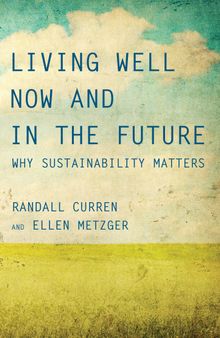 جزییات کتاب
جزییات کتاب
A philosopher and a scientist propose that sustainability can be understood as living well together without diminishing opportunity to live well in the future.Most people acknowledge the profound importance of sustainability, but few can define it. We are ethically bound to live sustainably for the sake of future generations, but what does that mean? In this book Randall Curren, a philosopher, and Ellen Metzger, a scientist, clarify normative aspects of sustainability. Combining their perspectives, they propose that sustainability can be understood as the art of living well together without diminishing opportunity to live well in the future.Curren and Metzger lay out the nature and value of sustainability, survey the problems, catalog the obstacles, and identify the kind of efforts needed to overcome them. They formulate an ethic of sustainability with lessons for government, organizations, and individuals, and illustrate key ideas with three case studies. Curren and Metzger put intergenerational justice at the heart of sustainability; discuss the need for fair (as opposed to coercive) terms of cooperation to create norms, institutions, and practices conducive to sustainability; formulate a framework for a fundamental ethic of sustainability derived from core components of common morality; and emphasize the importance of sustainability education. The three illustrative case studies focus on the management of energy, water, and food systems, examining the 2010 Gulf of Mexico oil spill, Australia's National Water Management System, and patterns of food production in the Mekong region of Southeast Asia.



 دانلود کتاب
دانلود کتاب

 جزییات کتاب
جزییات کتاب





 این کتاب رو مطالعه کردید؟ نظر شما چیست؟
این کتاب رو مطالعه کردید؟ نظر شما چیست؟
